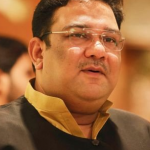SILENT STRAIN
In an age of instant communication, global connectivity, and unprecedented opportunities, one would imagine that today’s youth are better equipped than ever to lead fulfilling lives. Yet, behind the carefully curated social media feeds and enthusiastic ambitions lies a reality that’s far more complex: a growing wave of stress that silently grips the young generation.
Stress among youth is no longer an exception; it’s becoming a norm. Whether it’s the pressure to perform academically, the constant comparison through social media, or the anxiety of an uncertain future, young people are facing a unique and intense set of challenges that previous generations may not have encountered at the same scale. What makes this stress even more dangerous is its often-invisible nature-it hides behind smiles, silence, and “I’m fine.”
Academic Pressure and the Race to the Top
One of the primary contributors to stress among young people is academic pressure. Students today are not only expected to score high marks but also excel in extracurricular activities, internships, social service, and more. The race to gain admission into reputed institutions or land a prestigious job has intensified. Unfortunately, this pressure often overshadows the importance of learning and personal growth.
The fear of failure, both real and perceived can be overwhelming. Many students internalize the idea that their worth is tied to grades or achievements. As a result, even a minor setback can trigger self-doubt, anxiety, or even depression. The academic system, too, often prioritizes results over creativity, competition over collaboration, and ranks over individual growth.
The Double-Edged Sword of Technology
While smartphones and social media platforms have brought the world closer, they’ve also introduced a new kind of psychological burden. Constant connectivity can lead to information overload and digital fatigue. More alarmingly, the culture of comparison fostered by social media contributes significantly to low self-esteem.
Likes, followers, and filtered realities can distort a young person’s self-image. Seeing peers portray seemingly perfect lives can make one’s own life seem inadequate. This persistent comparison, combined with cyberbullying, cancel culture, and the fear of missing out (FOMO), can deepen feelings of isolation and anxiety. Technology, once seen as a tool of empowerment, has also become a quiet contributor to mental health struggles.
Family Expectations and Societal Norms
In many households, especially in traditional societies, the expectations placed on young individuals are immense. Whether it’s following a certain career path, maintaining a particular lifestyle, or upholding family reputation, the weight of these expectations can be suffocating. Many youths feel trapped between their personal desires and societal obligations.
Add to this the societal stigmas surrounding mental health, and it becomes even harder for youth to open up about their struggles. Many suffer in silence, fearing judgment or lack of understanding from elders who might dismiss stress as a sign of weakness or immaturity. This silence can be deadly, what’s needed is openness, trust, and a willingness to listen without bias.
The Need for a Safe Space
What the youth need today more than ever is empathy—not just from parents and teachers, but from society at large. Schools and colleges must go beyond academics and cultivate environments where students feel heard and supported. Mental health education, counselling services, and stress management workshops should be made accessible and normalized.
Support systems can also play a crucial role. Sometimes, just having someone to talk to someone who listens without judgment can make a world of difference. Encouraging hobbies, rest, self-expression, and mindfulness can also help build emotional resilience.
A Call to Action
The silent strain of stress cannot be ignored. If left unaddressed, it can lead to long-term mental health issues, loss of motivation, and even suicidal tendencies. Recognizing stress in youth is the first step. Acting on it with compassion, education, and open dialogue is the next.
The young generation holds the potential to transform the world, but they must first be empowered to take care of their minds. Let’s build a future where it’s okay to not be okay and where asking for help is seen as strength, not a weakness.
“Sometimes the people around you won’t understand your journey. They don’t need to, it’s not for them.”
(The Author is Deputy Director Research (GIAR), Guest Assistant Professor (Statistics), Associate Biostatistician (IQVIA), Statistical associate (Clinical Research). Feedback: [email protected])








